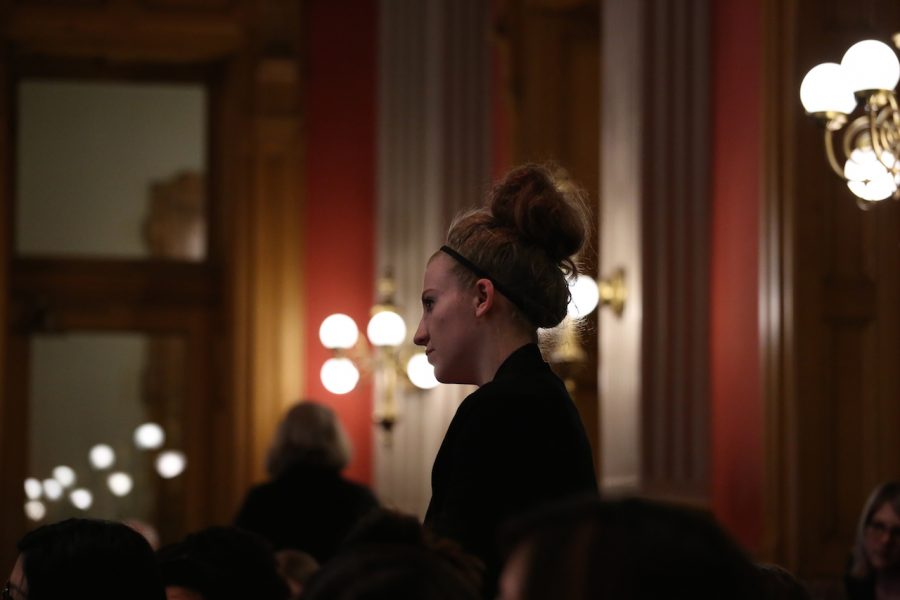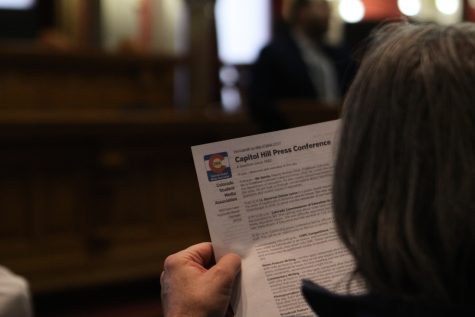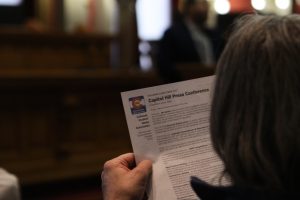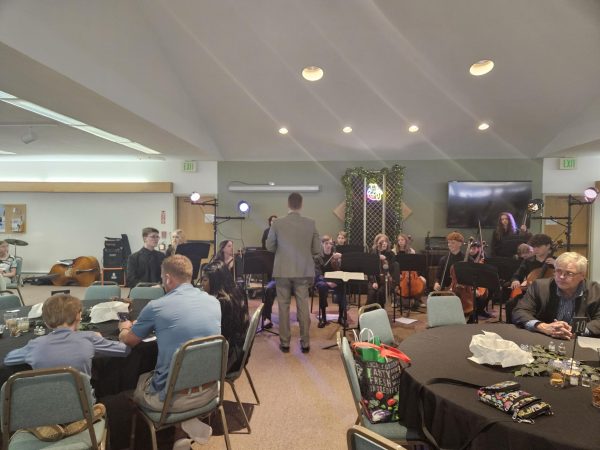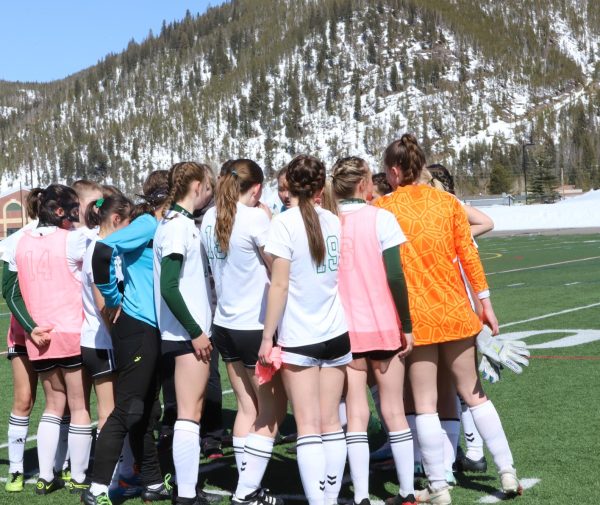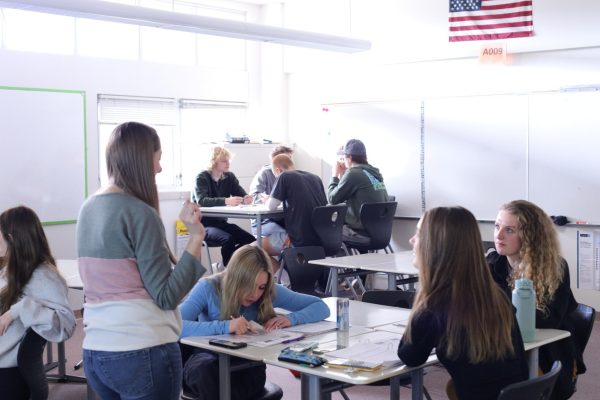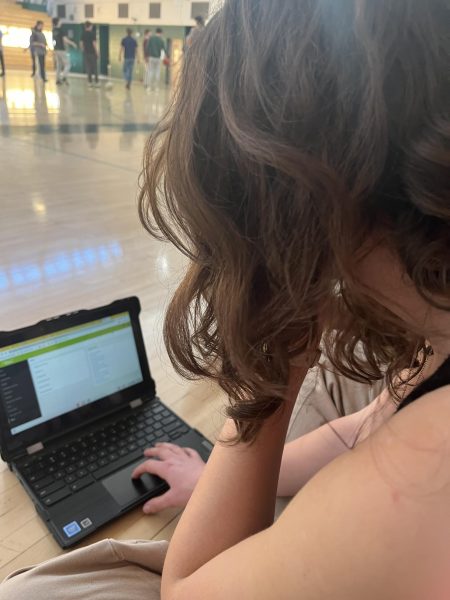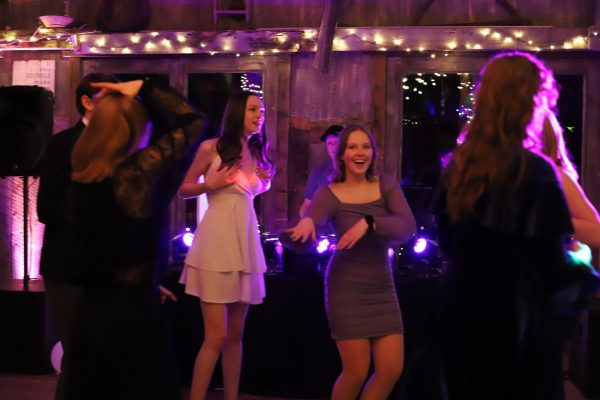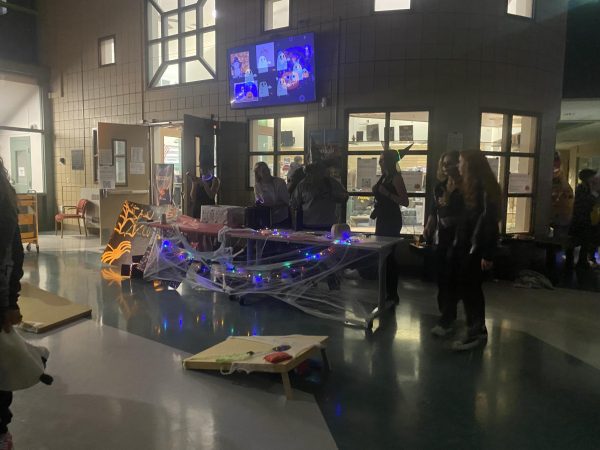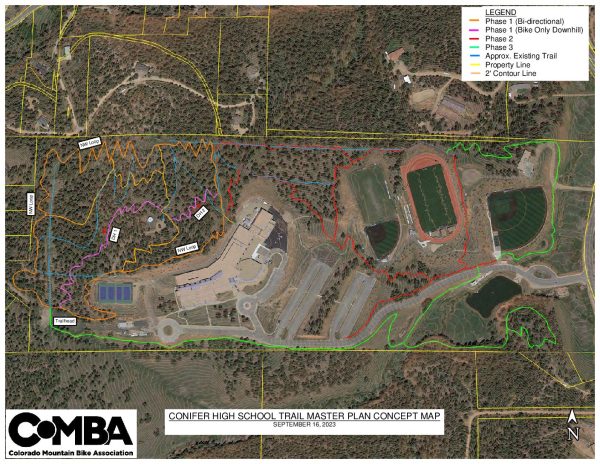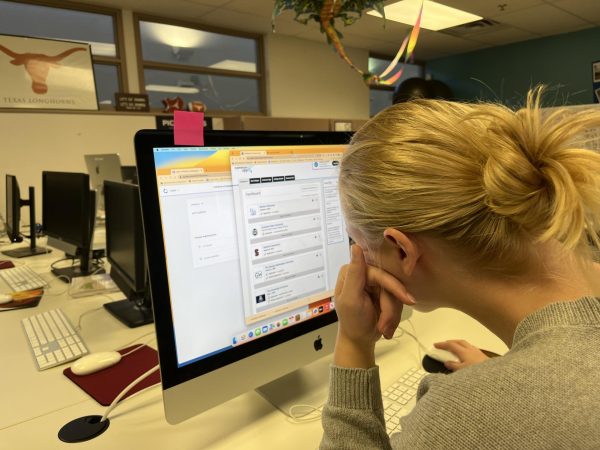Concealed Carry in Public Schools
Mackenzie Orr stands to ask representatives about pressing issues during Capitol Hill Press Day. The intent of the field trip was to provide the chance to gain insight to the inner workings of the Colorado government and pending bills and laws.
A teacher is preparing for class. She sits at her desk as kids file in from the hall. She has a presentation prepared, and kids sit down to take notes. As she reaches up to turn on the projector, a cold alloy object is noticed by one of the students. All of them stare at the gun by her side.
The bill, proposed in school year 2016-2017 by Representative Patrick Neville and sponsors Senator Tim Neville and Representative Kim Ransom, advocates for any persons with a concealed carry license to carry on the school grounds of an elementary, middle, or high school.
All three supporters have various backgrounds ranging from insurance agency owner to legislator. They are all Republicans; two of them have a strong connection with the proposed bill.
Patrick Neville was a sophomore at Columbine at the time of the shooting. His father, Tim Neville, is a sponsor of this bill due to the personal fire fueled in 1999.
“We saw it first hand. Patrick was a student at Columbine High School that day. Knowing all of those students that were involved, including the shooters, I understand misuse by criminals. Criminals don’t usually care about the law. They won’t care about something we pass,” Tim Neville said.
According to Chalkbeat, a nonprofit news organization committed to covering stories about America and education, in the past three years, 62 out of the 63 convictions of possession of a handgun on school property have also included other criminal charges. Bringing a handgun on school grounds in Colorado is a Class six felony, the least serious felony in Colorado, punishable by one year to 18 months in prison and a fine of $1,000 to $100,000, according to the NOLO Network.
“Law breakers don’t care about laws. Those that are looking to harm don’t care about what the law is, but they do care about whether they are going to be met with opposition and what that opposition looks like,” Neville said.
Retired Columbine principal Frank DeAngelis was the principal during shooting. DeAngelis has a contrasting opinion with his former student. He believes that having a concealed weapon is dependent upon the person and the school’s situation.
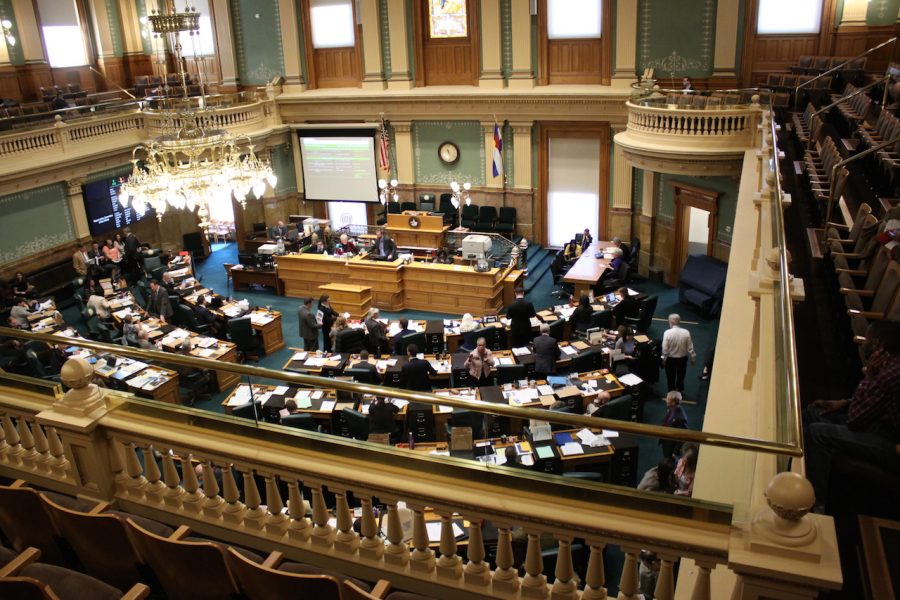
“In areas where there are not armed police officers I would say yes to the bill. In schools where there are school resource officers I would say no. At Columbine, we did have an SRO who was on staff. He did exchange gunfire with the killers, but the protocol was to secure the perimeter and wait for SWAT to arrive,” DeAngelis said.
For Colorado’s Judicial Department, workload will be reduced by at least twenty one cases a year if the bill is passed. Students are not concerned with statistics, though, they are concerned for their own safety.
“In Columbine the number of victims could have increased because of misfires from teachers,” Eagle Valley student Rogelio Caballero said.
Another Eagle Valley student, Alondra Escobar, was eager to add his voice to the discussion.
“What if the teacher wasn’t properly trained and had a hand gun? They could easily miss the shooter, and shoot a student. Guns should not even be allowed in schools. It is a place that should be violent free,” Escobar said.
Past interviews have shown that Columbine survivors feel very differently about guns in schools in comparison to many students who have not been affected by school shootings.
“I truly believe that had some of them had the legal authority to be armed, more of my friends might be with me today,” Patrick Neville said in an interview with NPR.
Bills regarding school safety come and go in the Colorado legislature. Changes are proposed and passed, or ignored. One thing remains very clear, however. The safety of students is priority in any situation.
“I would like to see a way to protect what districts think is the most important asset to every teacher and family. It’s you guys, the students. That should be their first goal. There are a lot of opportunities to protect students allowed for districts based upon whether or not the law passes or not,” Tim Neville said.
As of this writing, this bill has been postponed indefinitely which means it will not appear in this legislative session.
